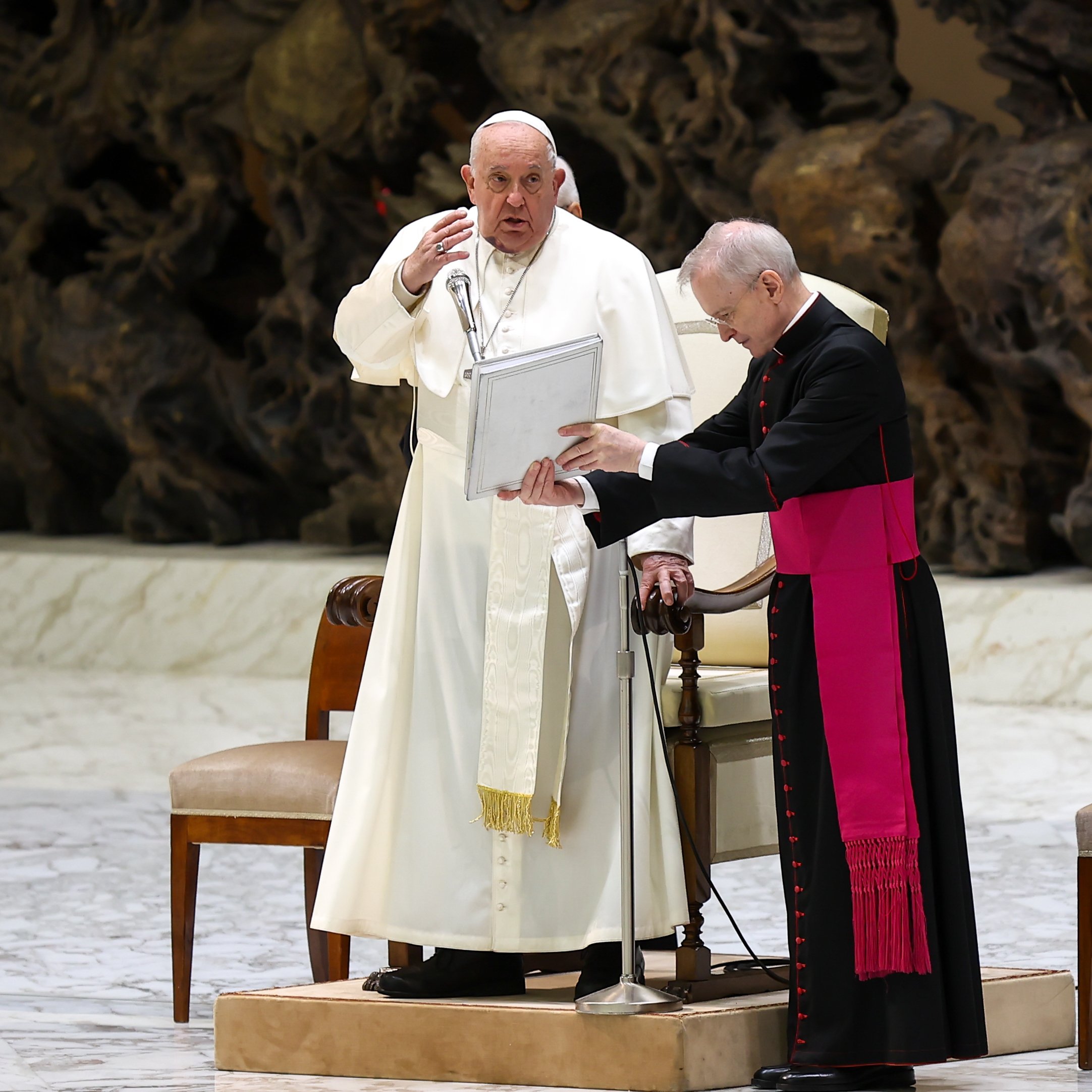BEFORE THE CROSS | Speaking truth also requires gauging how the message is received

Our duty to the Eighth Commandment — Thou shalt not lie — is fascinating. The first level is obvious, even if it isn’t always easy: our speaking must be truthful. But deeper levels are illuminated by the readings this week.
Let’s anchor our reflection in St. Paul’s speech at the Areopagus, which we hear on Wednesday.
The Areopagus was a place for public discussion and debate. Paul gave a sophisticated, well-reasoned, inculturated message ending with the truth about the resurrection of the dead. And it simply fell flat. The hearts of the crowd weren’t moved. What did Paul do? He didn’t prolong a conversation that wasn’t bearing good fruit. Seeing that the Holy Spirit wasn’t moving their hearts, he left.
Compare that to the reading Monday. A woman named Lydia heard Paul speaking “and the Lord opened her heart to pay attention.” She and her household were baptized. The proclamation bore good fruit, so Paul stayed.
In the reading Tuesday, Paul and Silas were in jail, and the jailer asked: “What must I do to be saved?” When he heard the Gospel, the jailer’s heart was opened. He and his household were baptized. Again: the proclamation bore good fruit, so Paul stayed with them.
After Paul left the Areopagus, he went to Corinith. What did he preach there? Not the wisdom of Greek philosophy but the simple truth of the Cross. How was this message received? The Holy Spirit opened the hearts of the Corinthians, and it bore tremendous fruit. Not only did Paul stay with them, he wrote them at least two letters, which are in the New Testament.
What do these readings teach us about our duty to the Eighth Commandment?
In addition to requiring that our words be true, the Eighth Commandment requires that we pay attention to how the truth is being received. Sometimes the Holy Spirit prepares a heart to welcome the truth. Then, like St. Paul, we’re supposed to stay. Sometimes a person’s heart isn’t open to the truth, or not right now, or not from us. At that point our further insistence — as if the person were a nail, and if we hammer away at them long enough they must yield — no longer serves to build them up in the truth. Then, like St. Paul, it’s OK to walk away.
Our duty to the Eighth Commandment doesn’t require that we continue to fill the “comment boxes” on a webpage to get our point across. Even when we know that what we’re saying is true, sometimes we need to wait for the Holy Spirit to prepare the ground.
Consider the example of Jesus. In the Gospel this week, He says: “I have much more to tell you, but you cannot bear it now. But when He comes, the Spirit of truth, He will guide you to all truth.”
Jesus is Truth itself. But even He knew that the disciples weren’t ready to hear certain truths. He was willing to wait for the Spirit to prepare their hearts, so they could receive the truths He wanted to teach them.
Therefore, when it comes to our duty to the Eighth Commandment, after we ask the first question — “Is what I’m saying true?” — we need to ask more questions: “How is this being received? Is this a time to stay? Or is this a time to walk away?”
RELATED ARTICLE(S):FRENTE A LA CRUZ | Decir la verdad también requiere evaluar cómo es recibido el mensaje
Our duty to the Eighth Commandment — Thou shalt not lie — is fascinating. The first level is obvious, even if it isn’t always easy: our speaking must be truthful. … BEFORE THE CROSS | Speaking truth also requires gauging how the message is received
Subscribe to Read All St. Louis Review Stories
All readers receive 5 stories to read free per month. After that, readers will need to be logged in.
If you are currently receive the St. Louis Review at your home or office, please send your name and address (and subscriber id if you know it) to subscriptions@stlouisreview.com to get your login information.
If you are not currently a subscriber to the St. Louis Review, please contact subscriptions@stlouisreview.com for information on how to subscribe.






